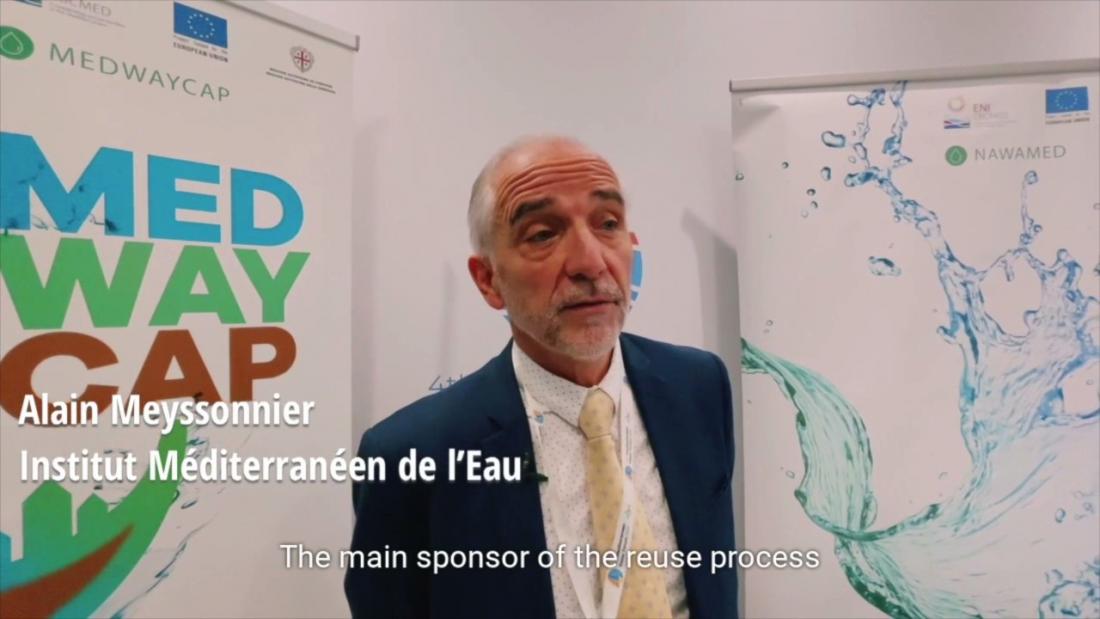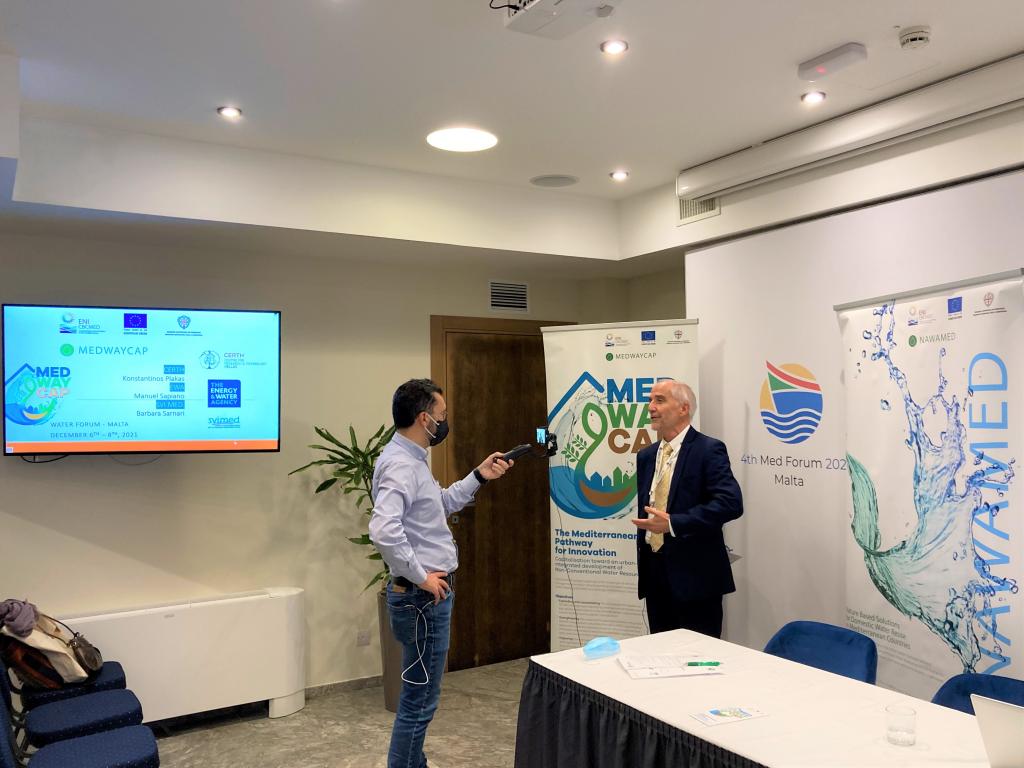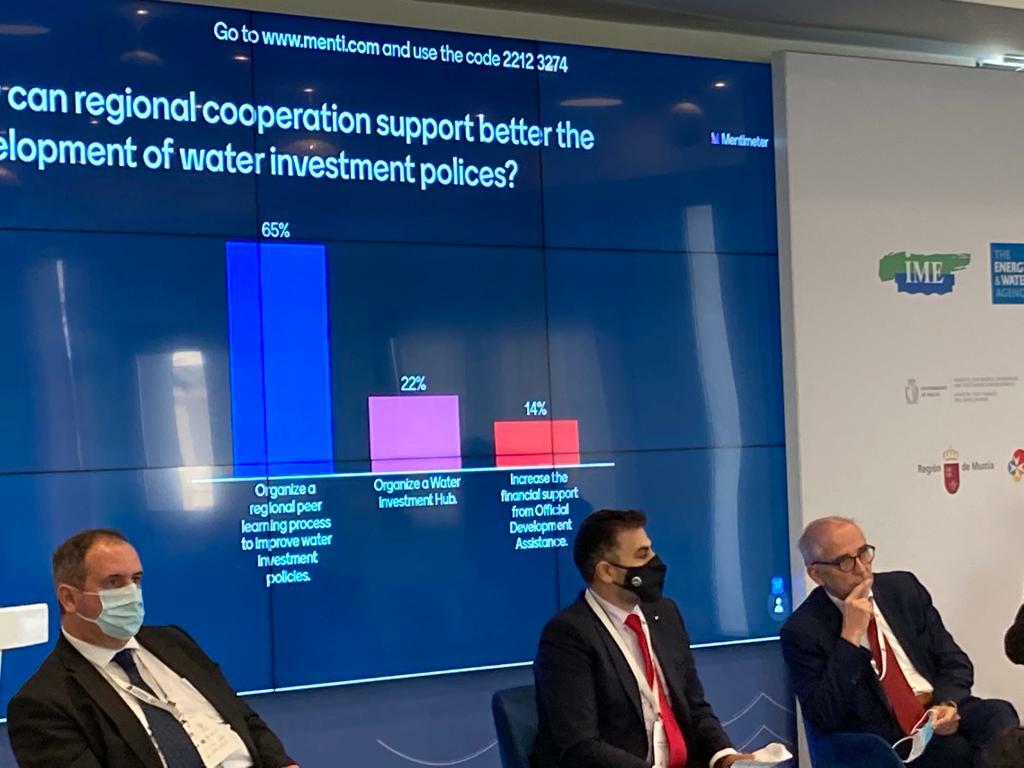Water management: “[MEDWAYCAP] In search for efficiency and ‘dynamic resilience’” Alain Meyssonnnier’s interview - President of Institut Méditerranéen de l’Eau – IME

The last December the Euro-Mediterranean centre for the sustainable development – SVI.MED, partner of NAWAMED and MEDWAYCAP projects, attended the 4th Mediterranean Water Forum (MWF)in Malta to contribute their experiences and establish new relationships with potential international partners. The occasion was tackled to interview some speakers with the aim to deepen how supporting innovative solutions and technologies to increase efficiency starting from the reuse of treated wastewater.
The MWF has been organized by the Water&Energy Agency - EWA of Malta, partners with SVI.MED of both projects, the Institut Méditerranéen de l’Eau - IME and the Union for the Mediterranean - UfM.
It is a fact that, today, many countries do not have enough water. They are now living in a state of water stress. In some cases, 80% of the water is consumed by agriculture, and urban and industrial water consumption is added to this. This is why they must develop systems to use non-conventional water, starting with the reuse of waste water and in the same time be more efficient in the use of the resource
One of interview was developed with Alain Meyssonnier, the President of the Institut Méditerranéen de l’Eau – IME. The IME is a Mediterranean association created in Rabat, Morocco, in 1982, bringing together members of diverse origins but having the common point of being an actor in the issue of water in the Mediterranean. It integrates all the stakeholders in this issue: local and territorial authorities, ministerial bodies, professionals (public and private operators), individual skills.
I want to give you an example: in Morocco, a large industry, one of the world's most important phosphate producers, has set itself the goal of using only non-conventional water. They are preparing. More generally, it is a priority for the Planet to reduce pressure on the use of resources, and water in particular. In the case of agriculture, it is possible that new technologies could reduce water consumption even significantly over the next 10 years. But to these results we must add the reuse of water

The IME aims to facilitate and initiate regional cooperation actions in the field of water management and related services between public and private institutions and operators in the Mediterranean region through its large network of partners (water and sanitation managers, local authorities, specialised organisations, donors, engineers, technicians and research teachers.
The IME's mission is to provide expertise, training and documentation services that meet the specific needs of its members (in accordance with its primary vocation).
This also applies to Europe, where the re-use of water has been under discussion for years. In France, for example, there is not enough water in some areas in the summer, not so much because of usage as because of the effects of climate change
But we have also to work on the problematic aspects of these technologies, starting with the energy consumption required, which is very high. Or on the impacts on the environment, for example in the case of desalination, which is sometimes the obligatory choice. So, it is necessary to be very efficient in the process.
The strength of the reuse process is the circular economy. You use it, you transform it and you reuse it. Like this is very efficient. Maybe you use 5% of your consume for you and you drink only maybe 2% or 3% maximum of your use, the other use is to wash you, to wash your clothes, to wash your car... But for these uses you don't need to have a perfect water. The perfect water only applies maybe for the taste. In everyday life, you can use two kinds of different water. This happens for example in Japan, or in Singapore, and in a lot of countries where the reuse goes until the drinking water. This is the best solution we have to work in this, and act to maintain the condition of the resources
Unfortunately, there is a social problem with the reuse, Mr. Meyssonnier added: people are not confident about the technologies.
We have to work with sensibilisation. If we have to work with children, we have to explain them at school what's happening with the resources, what are the solutions and we have to work also to sensitise the policy, the population, the associations, the NGOs, etc to tell them that the technical solutions are now ok and we can make confidence on these solutions, because we have examples now

Even in France it is very complicated, the Ministry of Health itself has expressed concerns about water reuse, said Mr. Meyssonnier.
But things are changed little by little, and in this case the experiences of the South are often better than those of the North. Frankly, if I were an engineer who wanted to train on these issues, I would go to Tunisia, Morocco, Jordan and Israel to learn, and not to Europe
Finally, if we are talking about efficiency, we must also talk about the "dynamic resilience" of infrastructures.
Over the last 15 years or more, we have not taken enough care of networks, the quality of materials and their maintenance. And now we are paying the price. For me, the priority now is to be more efficient: fixing leaks, adopting metering tools to preserve existing resources, and at the same time moving to non-conventional waters. A bit like Tunisia, which is taking one step at a time instead of focusing on large-scale plants
The MWF allowed the NAWAMED and MEDWAYCAP
projects to better understand the pathway for to strengthening the value and impact of innovative integrated Non-Conventional Water Resources management solutions through a Mediterranean Alliance for a collective learning towards effective policies and innovation processes.
Watch a clip of the video interview here.









